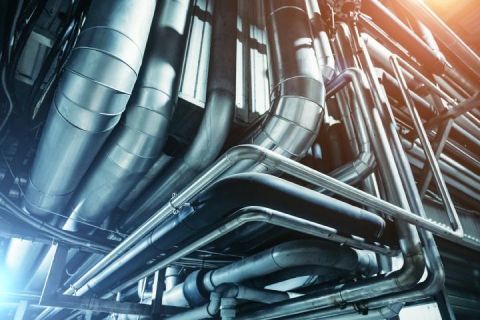With over 70 years of experience in the HVAC industry, our Continuing Professional Development (CPD) presentations will help you collect accredited hours while giving useful, relevant, and up-to-date information on how to improve how you specify the systems within your buildings.
Our CPDs are designed to help building professionals understand different HVAC technologies, from project application to potential routes to compliance. All our presenters are trained by GDHV, and have extensive experience within the HVAC industry to better understand your requirements.
Our CPDs presentations and courses can be delivered at your offices or online, via Microsoft Teams.
CPD Topics
How smart can electric heating be?
This presentation demonstrates electric heating product demand in relation to environmental policy changes affecting our industry. Housing developers, energy and social housing professionals will gain a valuable insight into understanding considerations that should be made when heating buildings.
Read moreFinding the path to Part L compliance
This presentation explores some of the potential routes housing developers can take to achieve 2013 Part L compliance with electric heating. It is aimed at professionals looking to integrate electric heating into domestic dwellings or those looking to increase their knowledge of electric heating systems.
Read moreGround source heat pump collectors; evaluating the options
This short CPD course covers the different GSHP collector options available on the market, providing some rules of thumb used within the industry and guidance on where to go when more detailed analysis is required.
read moreIntroduction to heat pump technology
This CPD is suitable for anyone who needs an introduction to heat pump technology, introducing the main benefits for new build and refurbishment projects. This CPD is aimed at architects, building service engineers and professionals needing an introduction to heat pump technology.
Read more
For key information that brings value to each stage of your project from inception through to completion

Zeroth Energy System and district heat networks
The tightening timescales for reaching the 2050 net-zero carbon target require us to accelerate our efforts at the decarbonisation of heat. Ambient loop systems, such as the Zeroth Energy System, are being increasingly specified for multi-occupancy developments due to their high efficiency and capability to reduce a building’s CO2 emissions.This raises the question: can the Zeroth Energy System be specified in a district heating priority area, and can it connect to the district heating network?

Will the outcomes of COP26 significantly speed up the uptake of low carbon technologies?
We are all waiting to see what the real impact will be from the climate summit COP26 for the construction sector, specifically with regard to the decarbonisation of heat. One of the insights that came out of the second day of the summit, which featured a session on clean technology and innovation, was delivered by UK Prime Minister, Boris Johnson:
‘By making clean technology the most affordable, accessible and attractive choice, the default go-to in what are currently the most polluting sectors, we can cut emissions right around the world’.

Which heating and cooling emitters can I use with a heat pump?
Any hydronic heating and cooling emitter such as fan coils, radiators or trench heating, could be used with a heat pump.
There are a number of factors, however, which will ultimately impact the final specification. These include thermal requirements, such as whether the building needs heating only or heating and cooling, control requirements and design preferences, such as whether to have the emitter recessed or on view.











